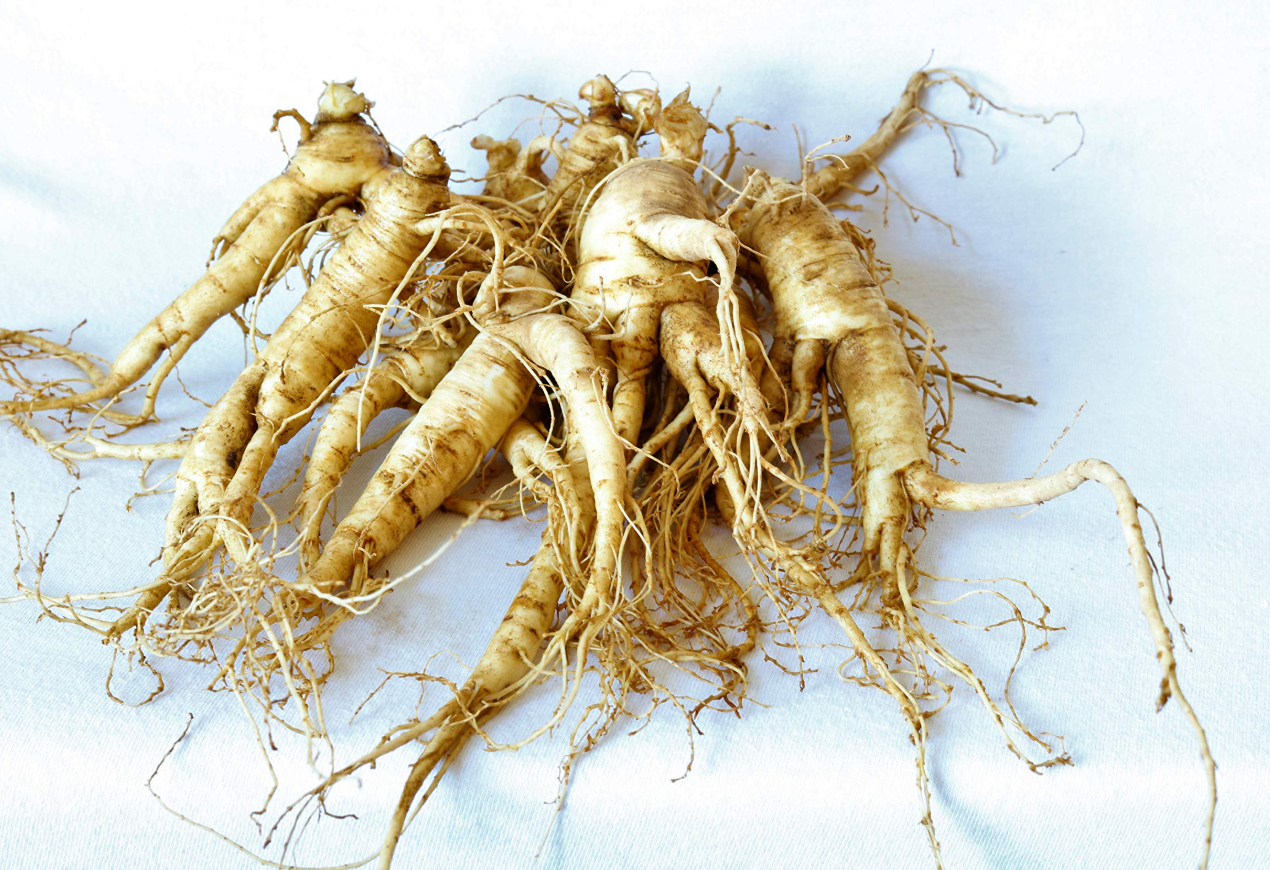For centuries, ginseng has been celebrated in traditional medicine for its wide-ranging benefits—from boosting energy to enhancing immune function. But not all ginseng is created equal. While Panax ginseng (Asian ginseng) tends to dominate the conversation, American ginseng (Panax quinquefolius) offers a unique profile of benefits that make it particularly appealing for those seeking a calming adaptogen that supports focus, immune health, and resilience to stress.
In this article, we’ll dive into what American ginseng is, how it works in the body, the science behind its benefits, appropriate dosages, potential side effects, and how it stacks up against Panax and Siberian ginseng.
What Is American Ginseng?
American ginseng (Panax quinquefolius) is a perennial herb native to North America and primarily grown in the United States and Canada. It belongs to the Araliaceae family and is considered a true ginseng due to its content of ginsenosides—the active compounds responsible for many of its therapeutic effects.
While it shares the genus name with Asian ginseng, American ginseng differs in chemical composition and physiological effects, often promoting more of a calming and immune-supportive role than a stimulating one. It has been widely used in Traditional Chinese Medicine (TCM) and Western herbalism to treat fatigue, inflammation, immune dysfunction, and cognitive decline.
How American Ginseng Works
The key bioactive components in American ginseng are ginsenosides, specifically Rb1, Re, and Rd, which differ from the more stimulating Rg1 and Rf found in Panax ginseng.
Here’s how American ginseng works in the body:
-
Adaptogenic Function: Helps regulate the body’s stress response by modulating the hypothalamic-pituitary-adrenal (HPA) axis and reducing cortisol levels.
-
Cognitive Support: Enhances neurotransmitter balance, particularly acetylcholine and dopamine, which support memory, attention, and mood.
-
Immune Modulation: Stimulates macrophage and natural killer (NK) cell activity to enhance immune surveillance.
-
Anti-Inflammatory Action: Reduces the expression of pro-inflammatory cytokines like TNF-α and IL-6.
-
Glycemic Regulation: Enhances insulin sensitivity and reduces postprandial blood glucose levels by increasing GLUT-4 expression in cells.
“Ginsenosides from American ginseng exert immunomodulatory and neuroprotective effects through the regulation of cytokine pathways and oxidative stress.” — Attele et al., Biochemical Pharmacology (1999)
Benefits of American Ginseng
1. Reduces Fatigue and Supports Energy
Unlike caffeine or Panax ginseng, American ginseng provides a non-stimulating boost to energy, making it ideal for those with fatigue related to stress or immune dysfunction.
2. Improves Cognitive Function
Studies show improved working memory, attention, and reaction time in individuals who supplement with American ginseng, especially in aging populations.
“Acute supplementation of American ginseng enhanced working memory and attention performance in healthy adults.” — Scholey et al., Journal of Psychopharmacology (2010)
3. Supports Immune Health
Clinical studies suggest American ginseng enhances immune resilience, particularly during cold and flu season. It may shorten the duration and severity of upper respiratory infections.
“American ginseng reduced the number and severity of colds in adults with high stress levels.” — Predy et al., CMAJ (2005)
4. Balances Blood Sugar
American ginseng may reduce post-meal blood glucose levels and improve insulin sensitivity, making it promising for prediabetics and those with type 2 diabetes.
“American ginseng improved postprandial glycemic control in type 2 diabetic patients.” — Vuksan et al., Archives of Internal Medicine (2000)
5. Anti-inflammatory and Antioxidant Effects
American ginseng helps lower inflammation markers and oxidative stress, which may support longevity and reduce risk of chronic diseases.
Recommended Dosage
The appropriate dose of American ginseng depends on the intended use, form of the supplement, and individual factors like body weight and health status. Here are general guidelines:
| Purpose | Recommended Dose |
|---|---|
| General immune and stress support | 200–400 mg/day (standardized extract) |
| Cognitive enhancement | 200–400 mg 30–60 minutes before activity |
| Blood sugar support | 1–3 grams of dried root, up to 3x/day with meals |
Look for products standardized to 5%–10% ginsenosides to ensure potency and consistency.
Potential Side Effects
American ginseng is generally well-tolerated, but some individuals may experience:
-
Insomnia (especially with high doses or nighttime use)
-
Headaches
-
Digestive discomfort
-
Nervousness or irritability
-
Hypoglycemia (in those taking diabetes medications)
High doses taken long-term may also cause hormone-related issues such as breast tenderness or menstrual irregularities.
Interactions with Other Medications
American ginseng may interact with the following medications:
-
Blood sugar-lowering drugs (e.g., Metformin, Insulin): May cause hypoglycemia.
-
Anticoagulants (e.g., Warfarin): Potential for increased bleeding risk.
-
Immunosuppressants: May counteract effects of drugs like cyclosporine.
-
MAO Inhibitors: May amplify stimulant-like effects or raise blood pressure.
Always consult a healthcare provider before starting ginseng if you're on prescription medications or have chronic health conditions.
Comparison: American Ginseng vs. Panax vs. Siberian Ginseng
| Feature | American Ginseng | Panax (Asian) Ginseng | Siberian Ginseng (Eleuthero) |
|---|---|---|---|
| Botanical Name | Panax quinquefolius | Panax ginseng | Eleutherococcus senticosus |
| Key Compounds | Rb1, Re, Rd ginsenosides | Rg1, Rf ginsenosides | Eleutherosides (not true ginsenosides) |
| Primary Effect | Calming, restorative | Stimulating, energizing | Adaptogenic, mild immune/stress support |
| Best For | Stress, immune, cognition, blood sugar | Physical stamina, libido, fatigue | Chronic stress, fatigue, athletic recovery |
| Stimulant Properties | Mild to none | Moderate to high | None |
| Safety for Long-Term Use | High | Moderate (may elevate BP in long-term) | High |
American ginseng is ideal for those seeking balance—especially if you’re overstimulated, under stress, or dealing with chronic fatigue and immune suppression. Panax ginseng, by contrast, is better suited for energy deficits or performance enhancement, while Siberian ginseng offers mild adaptogenic effects without true ginsenosides.
Conclusion
American ginseng stands out as a versatile, evidence-backed adaptogen that offers a wide range of health benefits—from cognitive enhancement and immune support to stress resilience and blood sugar balance. With a gentler, more restorative profile than Panax ginseng and a deeper ginsenoside spectrum than Siberian ginseng, it’s an excellent addition to a modern wellness routine.
Whether you're navigating chronic stress, frequent illness, or looking to improve mental clarity, American ginseng offers a natural, well-tolerated path to whole-body support. As with any supplement, remember to consult a qualified healthcare provider, especially if you’re managing a chronic condition or taking medication.
Find similar articles:
Supplements






